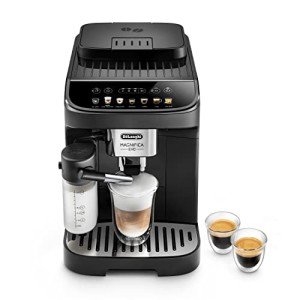10 Quick Tips For Bean To Cup Machines
Unlocking the World of Bean to Cup Machines: Your Ultimate Guide
In recent years, the demand for fresh, top quality coffee has actually surged, resulting in a rise in the appeal of bean to cup machines. These devices offer a convenient way for coffee enthusiasts to take pleasure in freshly ground coffee at the touch of a button. This post dives into the advantages, features, and factors to consider of bean to cup machines, guaranteeing readers are knowledgeable before making a purchase.
Understanding Bean to Cup Machines
Bean to cup machines are automated coffee makers that grind whole coffee beans right before developing. This process maximizes taste retention, fragrances, and vital oils, supplying a remarkable taste experience compared to pre-ground coffee. Designed for benefit, these machines can produce a range of coffee styles, consisting of espresso, cappuccinos, and lattes.
Advantages of Bean to Cup Machines
Freshness: Grinding the beans right away before developing maintains the coffee's natural flavors. Bean To Cup Coffee Beans launch important oils that add to a richer taste.
Convenience: Many bean to cup machines are designed for user-friendly operation. With the push of a button, users can enjoy their preferred coffee drinks without complicated brewing approaches.
Versatility: Most machines provide adjustable settings, making it possible for users to adjust grind size, coffee strength, and drink size according to personal preferences.
Consistency: With automated grinding and brewing processes, these machines supply consistent brewing results, ensuring a quality cup every time.
Affordable: While the upfront investment may be greater, the long-term cost savings from preventing coffee shop visits can make these machines economically beneficial.
Key Features to Consider
When choosing a bean to cup machine, it's vital to try to find specific features that match individual needs. The following table summarizes crucial features and their benefits:
Feature
Description
Benefit
Grind Settings
Adjustable settings for different grind sizes (coarse to fine)
Allows customization based upon coffee type and choice
Milk Frother
Integrated frothing innovation for creamy textures in milk-based drinks
Boosts coffee variety (e.g., lattes, coffees)
Water Reservoir Size
Differs from 1 to 2 liters; some machines have integrated water filters
A larger reservoir needs less frequent refills
User Interface
Digital screens and programmable choices for different drink settings
Makes it easy to personalize beverages
Cleaning and Maintenance
Automatic cleaning cycles and detachable brewing units
Simplifies upkeep for long-lasting use
Top Bean to Cup Machines on the marketplace
The market is filled with bean to cup coffee machines, each offering unique functions. Here's a list of a few of the leading models currently readily available:
De'Longhi Dinamica ECAM35020
- Features: Adjustable coffee strength, built-in frother, automatic cleaning
- Pros: Compact design, user-friendly interface
Breville Oracle Touch
- Features: Touchscreen operation, dual boiler system, programmable settings
- Pros: High-end performance, versatile brewing alternatives
Philips 3200 Series
- Features: Touch display, 5 various coffee styles, AquaClean filter
- Pros: Affordable, simple to tidy
Jura E8
- Features: Pulse Extraction Process, great foam technology, smart water system
- Pros: Excellent quality, smart technology integration
Siemens EQ.9
- Features: Dual coffee beans compartment, home link app, personalized settings
- Pros: Versatile, wise home combination capabilities
Maintenance Tips for Bean to Cup Machines
To guarantee a long life expectancy for a bean to cup machine, regular maintenance is essential. Here are some useful ideas:
- Daily Cleaning: Clean the brewing unit and water tank every day to prevent residue accumulation.
- Usage Fresh Beans: Store coffee beans in an airtight container to keep freshness. Prevent buying overly large amounts.
- Descale Regularly: Follow the maker's directions for descaling to avoid mineral accumulation.
- Inspect for Wear and Tear: Regularly examine parts for indications of wear, specifically the grinder and the water system.
Frequently Asked Questions (FAQs)
What is the rate range for bean to cup machines?
The rate of bean to cup machines can vary significantly. Fundamental models begin around ₤ 300, while high-end designs can exceed ₤ 2,000. The best option will depend upon functions desired and budget constraints.
Are bean to cup machines difficult to clean up?
The majority of bean to cup machines include functions developed for simple cleansing. Lots of designs have automatic cleansing processes, and removable elements simplify maintenance.
Can bean to cup machines make iced coffee?
While beans to cup machines primarily concentrate on hot drinks, some designs have functions that enable users to prepare cold beverages by changing brewing temperature level and strength.
Do bean to cup machines require special coffee beans?
There are no particular bean restrictions; however, it is usually advised to utilize top quality coffee beans for optimal flavor.
How long do bean to cup machines last?
With appropriate maintenance, a great quality bean to cup machine can last anywhere from 5 to 10 years, making it a worthy financial investment for coffee enthusiasts.
Bean to cup machines provide a revolutionary method to delight in coffee in your home. With their capability to brew a fresh cup of coffee at the push of a button, these machines deal with both casual drinkers and major coffee enthusiasts. By understanding the essential functions, benefits, and upkeep pointers, customers can make informed getting decisions, ensuring their journey into the world of newly brewed coffee is as enjoyable as possible.
